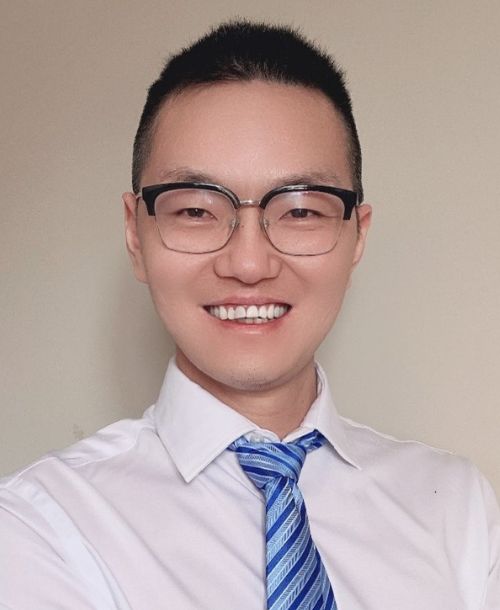Changhong Wang
Assistant Professor
cwang@eitech.edu.cn

Background Information:
Changhong Wang is currently an Assistant Professor at Eastern Institute of Technology, Ningbo. He received his MS degree in Material Engineering from the University of Science and Technology of China in 2014 and his Ph.D. degree in Mechanical and Material Engineering from the University of Western Ontario (UWO) in 2020. Before joining EIAS, He was a Banting Postdoctoral Fellow at the University of Maryland at College Park and a Visiting Researcher at UWO. So far, he has published 98 SCI papers, of which 37 papers (as the first or corresponding author) were published in prestigious journals such as Nature Chemical Engineering, Nature Communications, Science Advances, Joule, Advanced Materials, Angewandte Chemie International Edition, and Energy & Environmental Science.
Click to access the research group website.
Research Field:
Focusing on key materials and key technologies for all-solid-state batteries, the research mainly contains the following directions:
(1) Solid-state electrolyte development;
(2) All-solid-state lithium/sodium battery interface research;
(3) All-solid-state electrode and cell design;
(4) In-situ characterization techniques;
(5) Theoretical calculations.
Educational Background:
2016.09—2020.01: Ph.D. (Mechanical and Materials Engineering), The University of Western Ontario
2011.09—2014.06. M.E. (Materials Engineering). University of Science and Technology of China
2007.09—2011.06. B.S. (Applied Chemistry), Anhui Science and Technology University
Work Experience:
2023—present, Assistant Professor, College of Science, Eastern Institute of Technology, Ningbo
2022—2023, Visiting Researcher, The University of Western Ontario, Canada (Advisor: Prof. Xueliang Sun)
2022—2023, Banting Scholar, University of Maryland, USA, (Supervisor: Prof. Chunsheng Wang)
2021—2022, R&D director, GLABAT Solid-State Battery Inc.
2020—2021, Senior Scientist, GLABAT Solid-State Battery Inc.
2014—2016, Research Assistant, Singapore University of Technology and Design
Awards and Honors:
2022. 06. The First Prize of the 2nd BTR New Energy Technology Competition
2022,05—2024,04. Banting Postdoctoral Fellowship
2020. Chinese Government Award for Outstanding Self-Financed Students Abroad
2018.01—2020.01. MITACS Accelerate Scholarship
Representative Works:
Google Scholar:
https://scholar.google.ca/citations?user=brq6AJcAAAAJ&hl=en
Web of Science
https://www.webofscience.com/wos/author/record/AAV-4047-2021
10 Representative Publications (* refers to the corresponding author)
(1)J-T Kim‡, X. Hao‡, C. Wang*, and X. Sun*. Cathode Materials for Single-Phase Solid-Solid Conversion Li-S Batteries. Matter. 2023, doi: https://doi.org/10.1016/j.matt.2022.11.019.
(2)C. Wang, T. Deng, X. Fan, M. Zheng, R. Yu, Q. Lu, H. Duan, H. Huang, C. Wang, X. Sun. Identifying Soft Breakdown in All-Solid-State Lithium Battery. Joule, 2022, 6, 8, 1770-1781. doi https://doi.org/10.1016/j.joule.2022.05.020.
(3)C. Wang, J. Liang, J. Kim, X. Sun*. Prospects of Halide-based All-Solid-State Batteries: From Materials Design to Practical Application. Science Advances. 2022, 8,36, DOI: 10.1126/sciadv.adc9516.
(4)C. Wang, J-T Kim, C. Wang, and X. Sun*. Progress and Prospects of All-Solid-State Pouch Cells with Inorganic Solid-State Electrolytes. Advanced Materials. 2022, DOI: https://doi.org/10.1002/adma.202209074
(5)C. Wang‡, R. Yu‡, H. Duan‡, Q. Lu, Q. Li, K. Adair, D. Bao, Y. Liu, R. Yang, J. Wang*, S. Zhao*, H. Huang*, X. Sun*. Solvent-Free Approach for Interweaving Freestanding and Ultrathin Inorganic Solid Electrolyte Membranes, ACS Energy Letters, 2022, 7, 410-416. DOI: 10.1021/acsenergylett.1c02261.
(6)C. Wang, K. Adair, X. Sun*. All-Solid-State Lithium Battery with Sulfide Electrolyte: Understanding Interfacial Ion and Electron Transport, Accounts of Materials Research, 2022, 3, 1, 21–32, doi: 10.1021/accountsmr.1c00137.
(7)C. Wang‡, J. Liang‡, J. Luo, J. Liu, X. Li, F. Zhao, R. Li, H. Huang, S. Zhao, L. Zhang, J. Wang*, X. Sun*. A Universal Wet-Chemistry Synthesis of Solid-State Halide Electrolytes for High-Performance All-Solid-State Lithium Metal Batteries. Science Advances, 7, eabh1896 (2021). DOI: 10.1126/sciadv.abh1896
(8)C. Wang, J. Liang, Y. Zhao, M. Zheng, X. Li, X. Sun*. All-Solid-State Lithium Metal Batteries Enabled by Sulfide Electrolytes: from Fundamental Study to Practical Engineering Design. Energy Environmental Science, 2021, 14, 2577-2619.
(9)C. Wang‡, S. Hwang‡, M. Jiang‡, J. Liang, Y. Sun, K. Adair, M. Zheng, S. Mukherjee, X. Li, R. Li, H. Huang, S. Zhao, L. Zhang, S. Lu, J. Wang, C. V. Singh,* D. Su,* X. Sun*. Deciphering Interfacial Chemical and Electrochemical Reaction Mechanism of Sulfide-based All-Solid-State Batteries. Advanced Energy Materials, 2021, 2100210.
(10)C. Wang, K. Adair, J. Liang, X. Li, Y. Sun, X. Li, J. Wang, Q. Sun, F. Zhao, X. Lin, R. Li, H. Huang, L. Zhang, R. Yang, S. Lu, X. Sun*. Solid‐State Plastic Crystal Electrolytes: Effective Protection Interlayers for Sulfide‐Based All‐Solid‐State Lithium Metal Batteries, Advanced Functional Materials. 2019, 29, 1900392.





